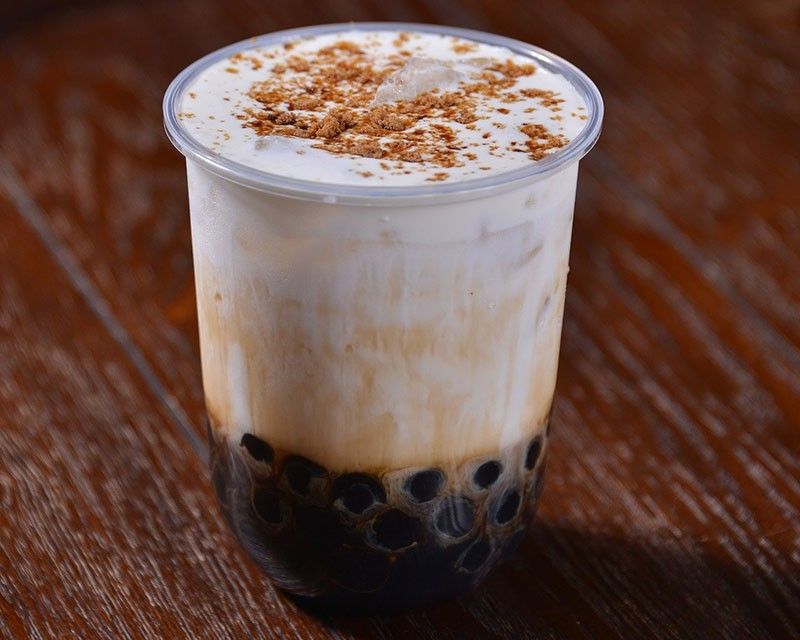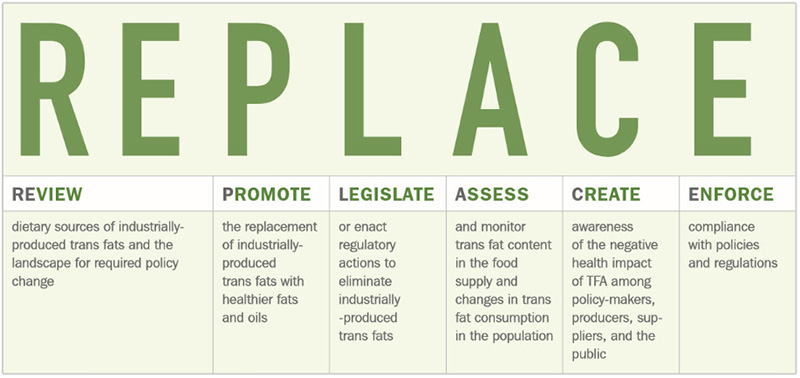Is there a hidden poison in your milk tea?

(First of two parts)
Does the wildly popular drink contain trans-fatty acids, which is a toxic fat? The answer is complicated—and may lead to heart disease and diabetes, which may put you at risk for COVID-19 disease.
It seems like everyone in the Philippines is jumping on the milk tea bandwagon. Filipinos stand in long lines at milk tea shops, buy it bottled from many stores, or purchase milk tea powder in sachets from groceries or by half-kilo packs from online shops. They reportedly slurped five cups of this cold and creamy drink per person per month in 2018, shows data from Grab Food.
Not Benelyn Dumelod, though. The food technologist doesn’t drink milk tea.
Dumelod was given four packs of milk tea powder by a friend; still, she did not taste the drink. She said, “I didn’t touch it because I doubt the safety of the food product.” And when it comes to food safety, Dumelod is an expert. She is an assistant professor at the department of food science and nutrition, College of Home Economics, at the University of the Philippines in Diliman.
A red flag
Dumelod considers the “vegetable oil” on the list of ingredients on the packs a red flag. She said, “The list doesn’t say ‘partially hydrogenated oil,’ but I assume that the oil has been hydrogenated to extend the shelf life of the milk tea powder.”
The process of adding hydrogen to vegetable oil turns the liquid oil into a solid. It produces partially hydrogenated oil, which stays fresh longer than other fats. This type of oil is what gives the non-dairy creamer used in milk tea its creamy consistency.
Here’s bad news for milk tea lovers: The process of hydrogenation produces a toxic fat called industrially produced trans fat or trans-fatty acids (TFA). This means that the non-dairy creamer used to make the popular drink may contain TFA.
Consuming this type of fat has “no known health benefits,” states the World Health Organization. The consumption of TFA is “estimated to cause around 500,000 deaths per year due to coronary heart disease.”
Double trouble
TFA may also be found in many processed foods, such as baked goods, corn and potato chips, margarine, microwaveable popcorn, fried fast foods, and frozen pizza crust. Manufacturers often use TFA as it has a longer shelf life and is cheaper than other fats.
TFA keeps processed foods fresh longer—but it shortens people’s lives. Consuming this unhealthy fat spells “double trouble for your heart health,” reports the Mayo Clinic. TFA is an artery clogger. It raises your “bad” cholesterol and lowers your “good” cholesterol. TFA increases the risk of heart attacks, stroke, and type 2 diabetes.
If you have heart disease or diabetes, it’s like having chinks in the armor of your body’s immunity. This means that if you get the coronavirus, your body won’t be able to fight the virus.
As of June 8, 2020, 49% of the Filipinos who died from COVID-19 had “comorbidities.” Simply put, they already had chronic conditions, including heart disease and diabetes, before they were infected by the coronavirus. As a result, they suffered the worst health outcome: death.
'Trans fat: 0 grams' ≠ zero
Do all milk teas contain TFA? Dumelod said that it’s hard to know for sure. Let’s start with the milk tea powder in the four packs. The food scientist checked the nutrition facts on the labels and read “Trans fat: 0 grams.”
How can that be, when the powder contains non-dairy creamer that likely contains hydrogenated fat and, therefore, TFA? Dumelod has a short answer. She quipped, “Either it’s really zero grams, or [the declaration] is ‘joke only.’”
Lawyer Sophia San Luis, executive director of ImagineLaw, and her colleagues have a longer answer. The non-profit public interest law group reviewed the laws and regulations of TFA reduction measures in the country. In the review, they wrote, “In practice, TFA content equal to or below 0.5g/serving is declared as having 0 g of TFA per serving. The DOH or FNRI has not issued guidelines permitting this practice, but it appears that the practice is based on rules issued by the US FDA.”
The same practice also applies to the nutrition facts on the labels of milk tea powder, bottled ready-to-drink milk tea, and all other food products. Joshua Alarcon, a food technologist, offers this rule of thumb: “If you see ‘hydrogenated vegetable oil’ or ‘partially hydrogenated vegetable oil’ in the list of ingredients, then the product contains TFA.” In short, “Trans fat: 0 grams” doesn’t mean that the food is free of the harmful fat.
TFA-laden milk tea
What about the milk teas sold in shops, fast-food joints, and restaurants? In the Philippines, “there is no legal requirement for restaurants to report the nutritional facts of their products,” said Jake Brandon M. Andal, RND.
In China, though, a study found that store-bought milk teas in Shanghai were laden with TFA. In 2017, the Shanghai Municipal Commission for Consumer Protection analyzed the TFA content of drinks sold “at over 27 different milk tea bars.” One brand topped the list in two categories: sweetened and unsweetened versions. The drink in the first category had 6.2 grams of TFA per 250 ml cup. The drink in the second category contained 5.8 grams of TFA per 250 ml cup.
There lies the rub: The ideal would be for 0 grams of TFA to be consumed. There is no safe amount for anyone to take in this toxic fat. This is the reason why the World Health Organization issued the REPLACE action package. The document provides a strategic approach to achieve a world free of TFA by 2023.

Time for a rethink
There is no available data on the TFA content of the milk teas—or any other food, for that matter—sold in the Philippines. “There are no studies about the local consumption of TFA,” said Andal. Indeed, Filipino consumers can’t know for sure if and how much TFA is in their cups of milk tea.
There are non-dairy creamers that are specially processed to have no TFA, said Angelica Garcia, RND. However, she said, “we won’t know what type of nondairy creamer is used in milk tea. Usually, if the product is cheap, it’s the creamer that is laden with TFA because it’s cheaper to use.”
In a nutshell, Filipino milk tea lovers, you may want to rethink your addiction to the cold and creamy drink. Each cup you slurp may put you at risk for developing heart disease and diabetes. These conditions may make things worse for you should you get COVID-19 disease.
There is a way to protect all Filipinos from the health risks of consuming TFA: banning the harmful fat from the country’s food supplies. Please read the second part of this article to find out how such a ban can save lives.
This story was produced under the “(Un)Covering Trans Fats Media Training and Fellowship Program” by Probe Media Foundation Inc. and ImagineLaw. The views and opinions expressed in this piece are not necessarily those of PMFI and IL.



















